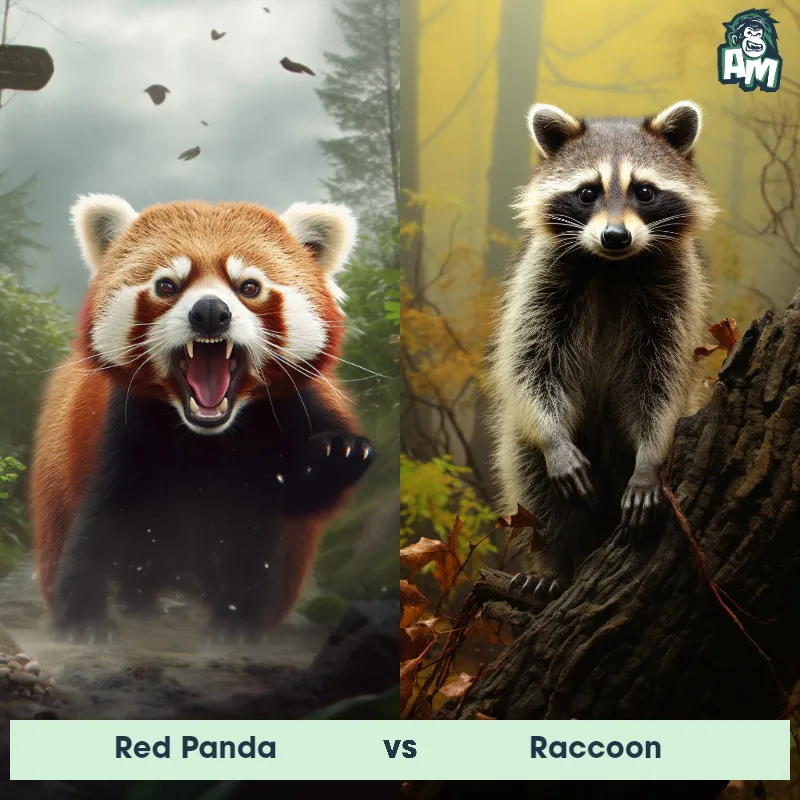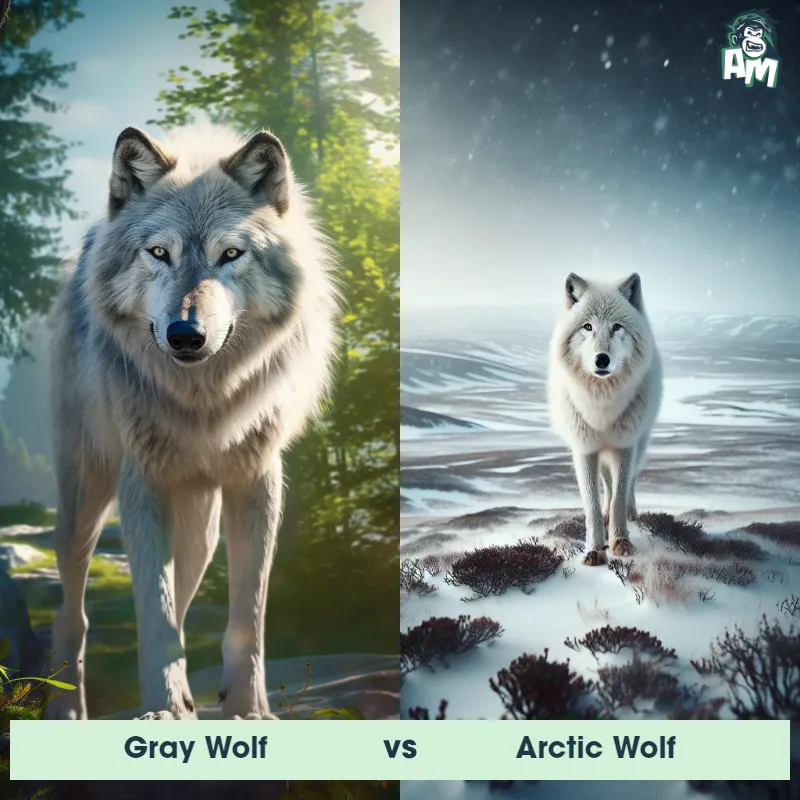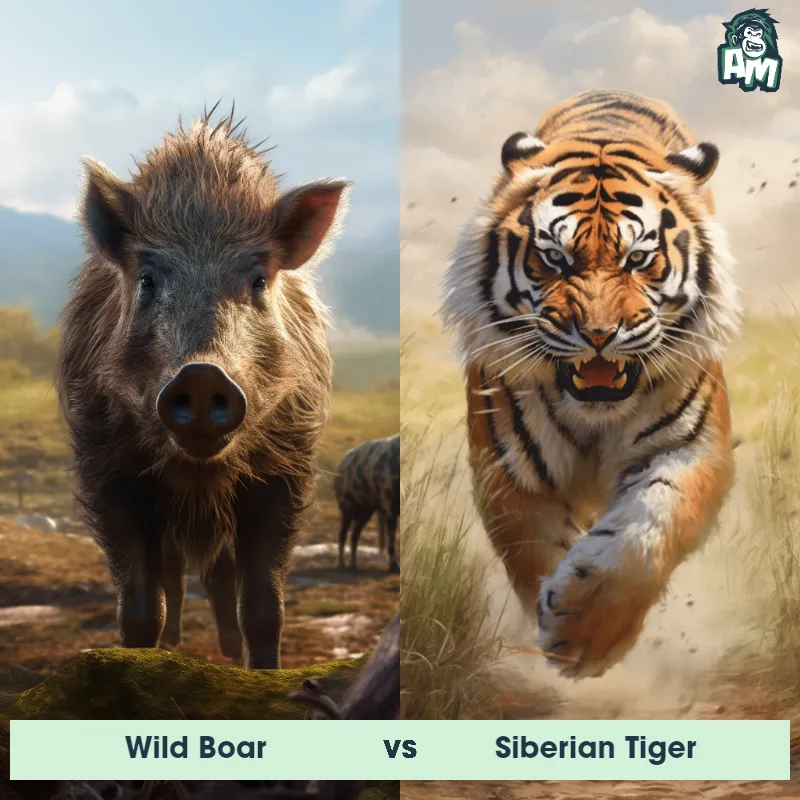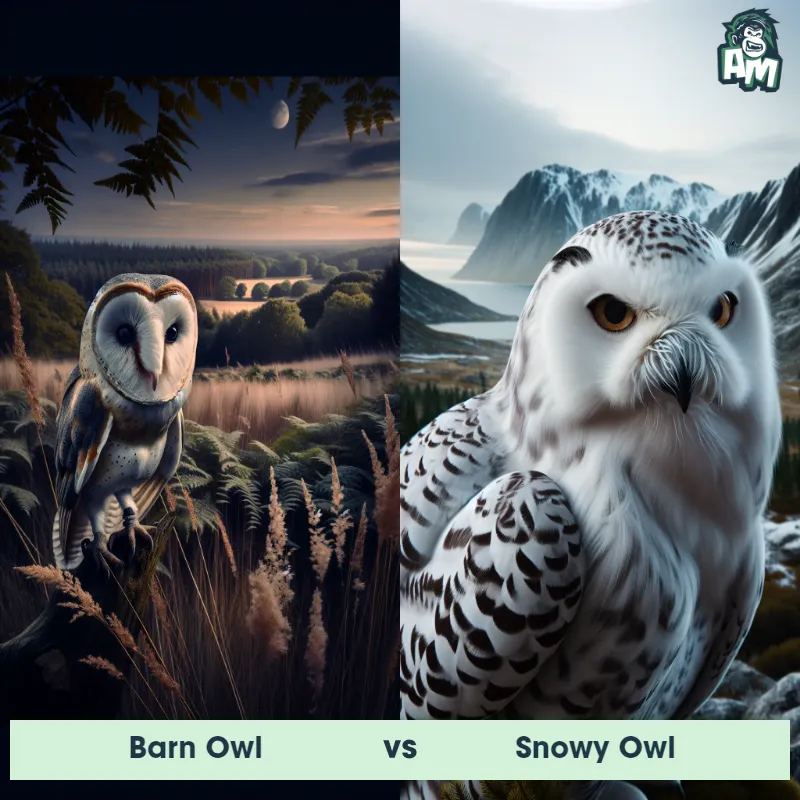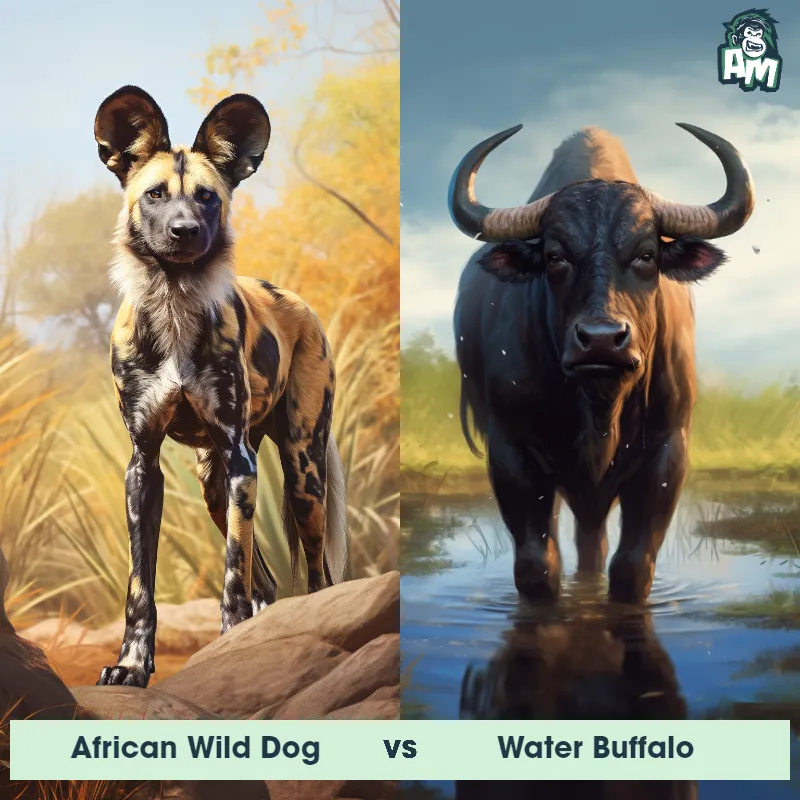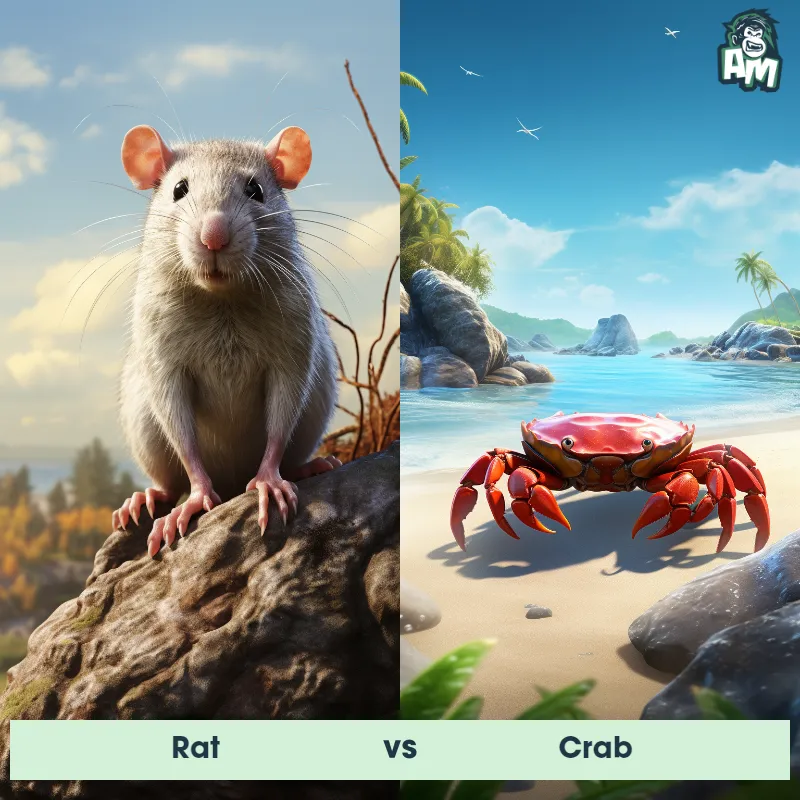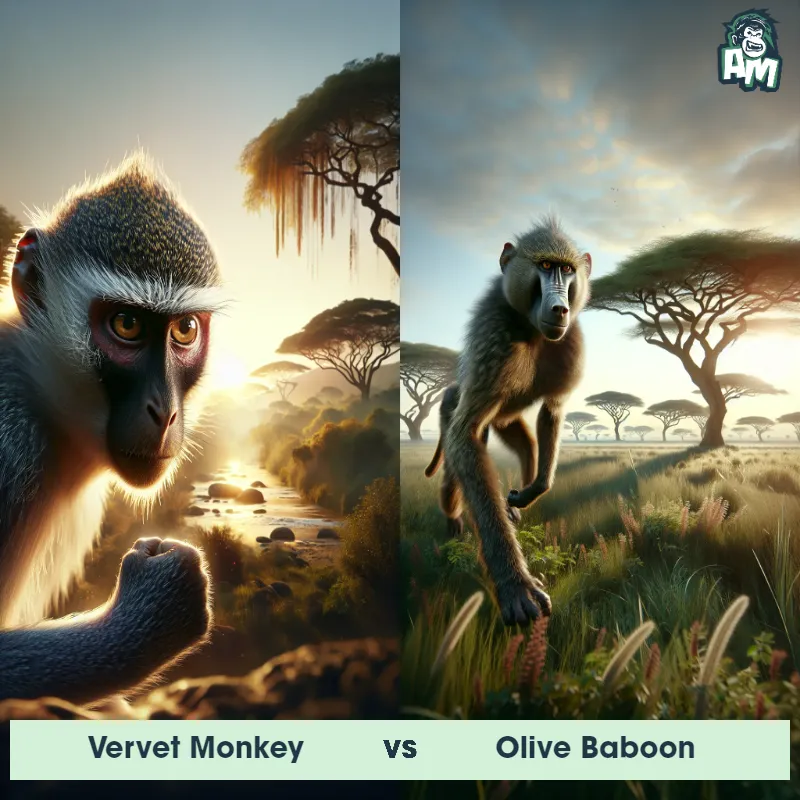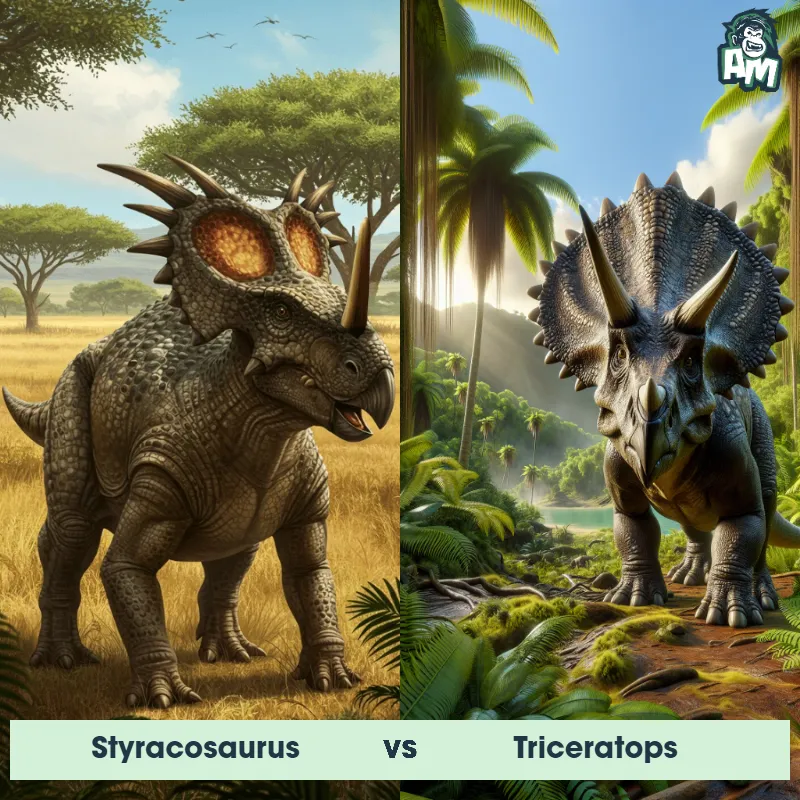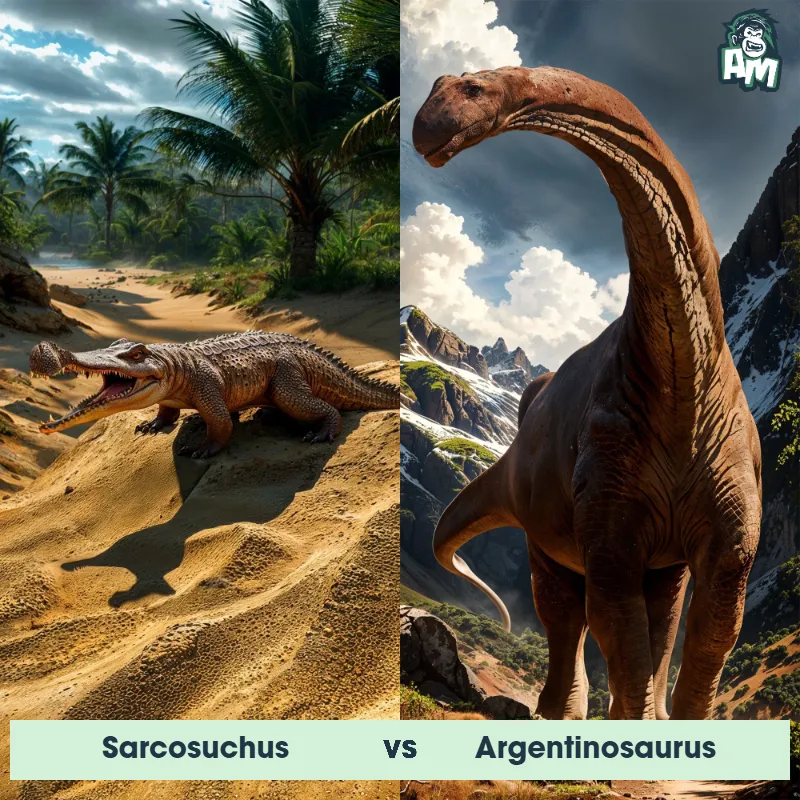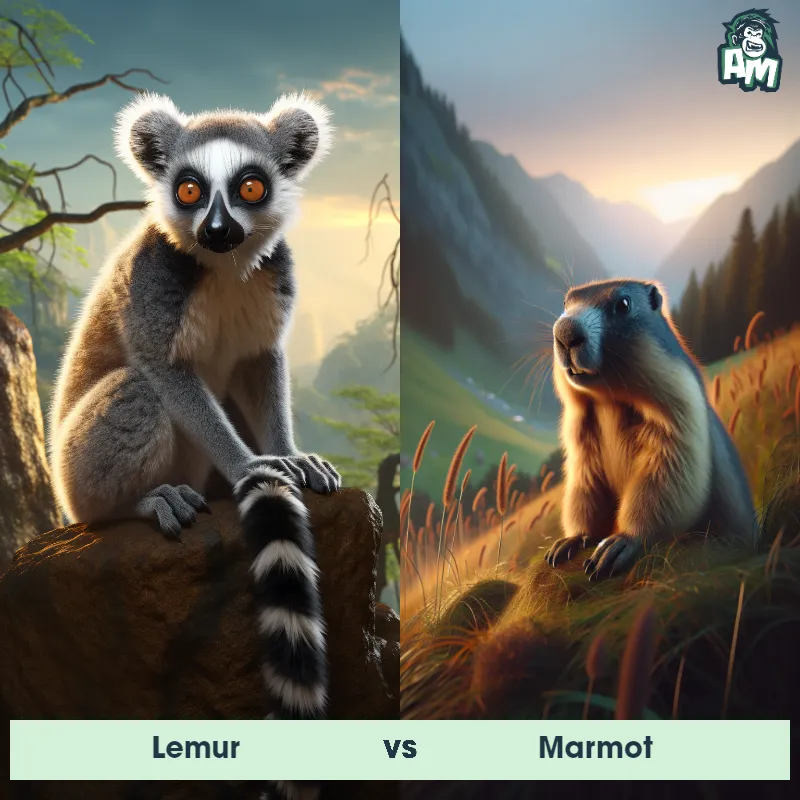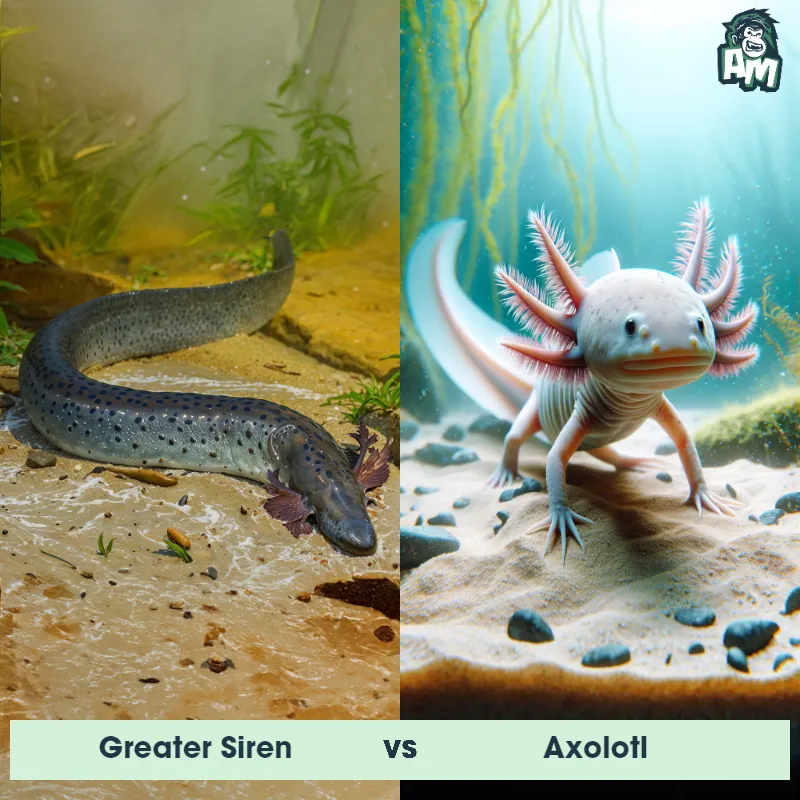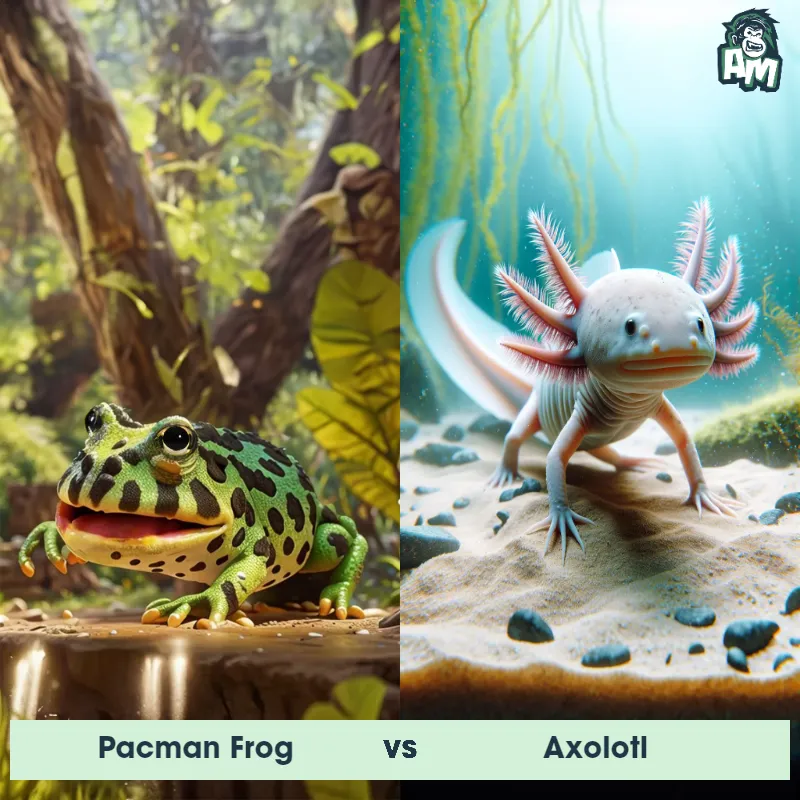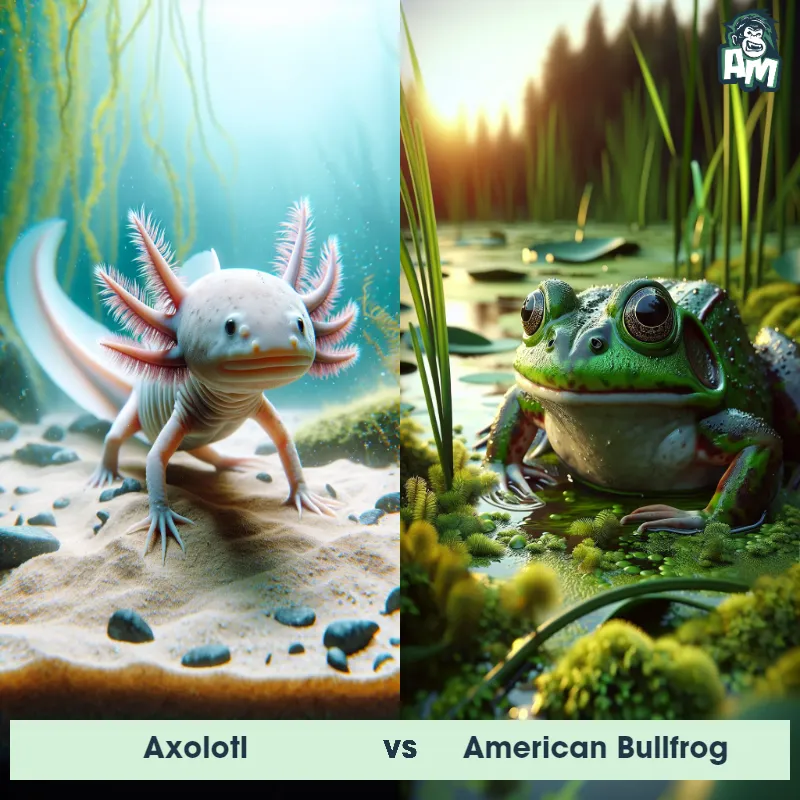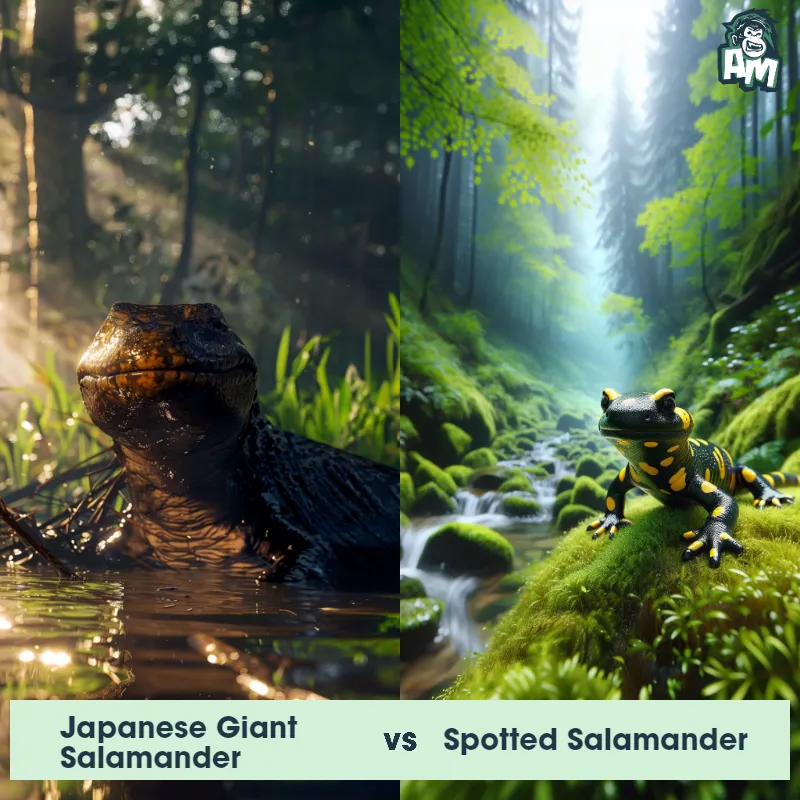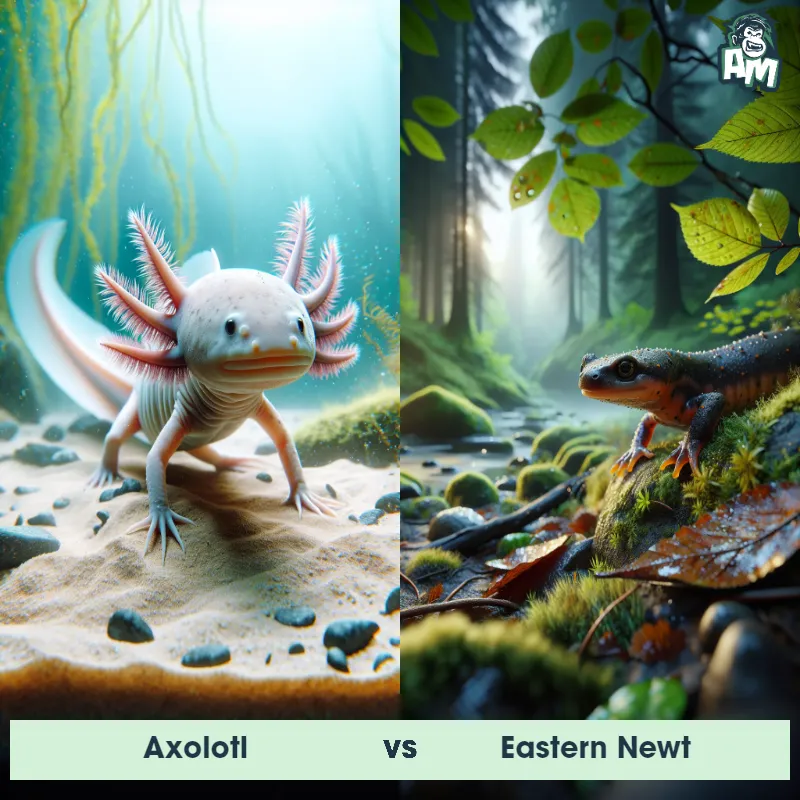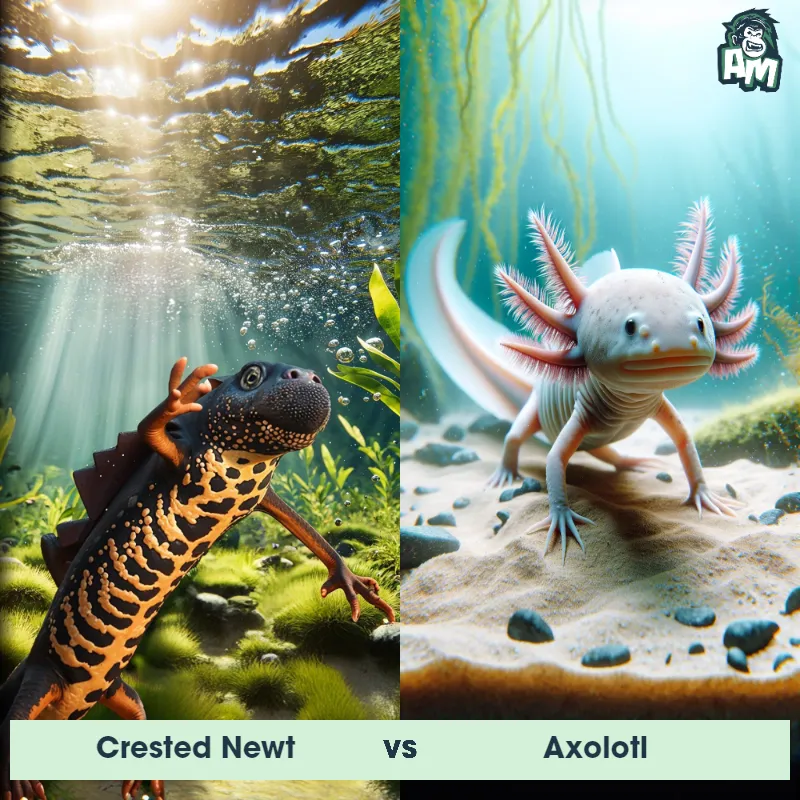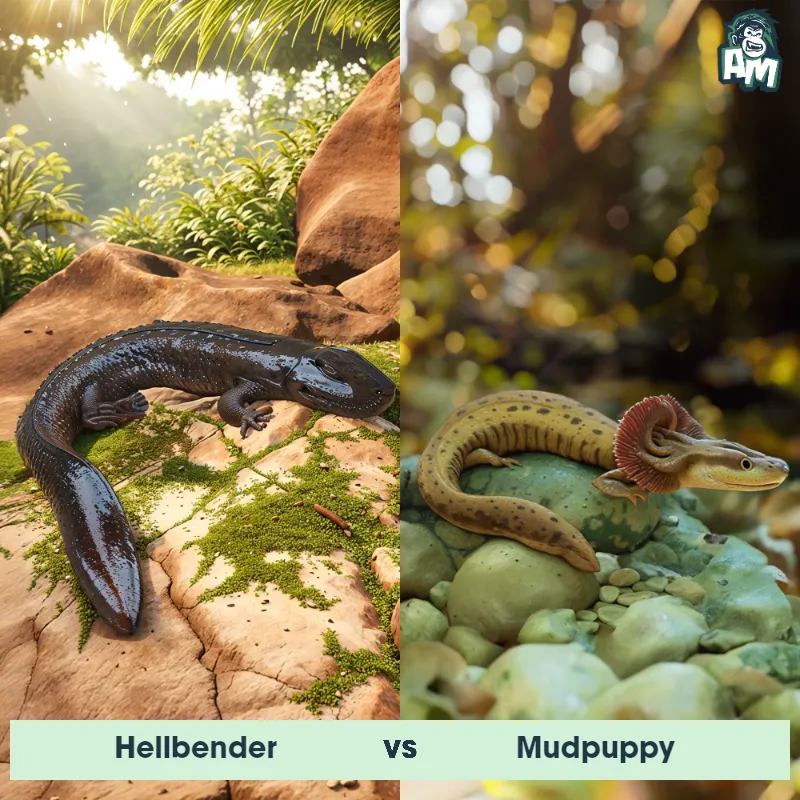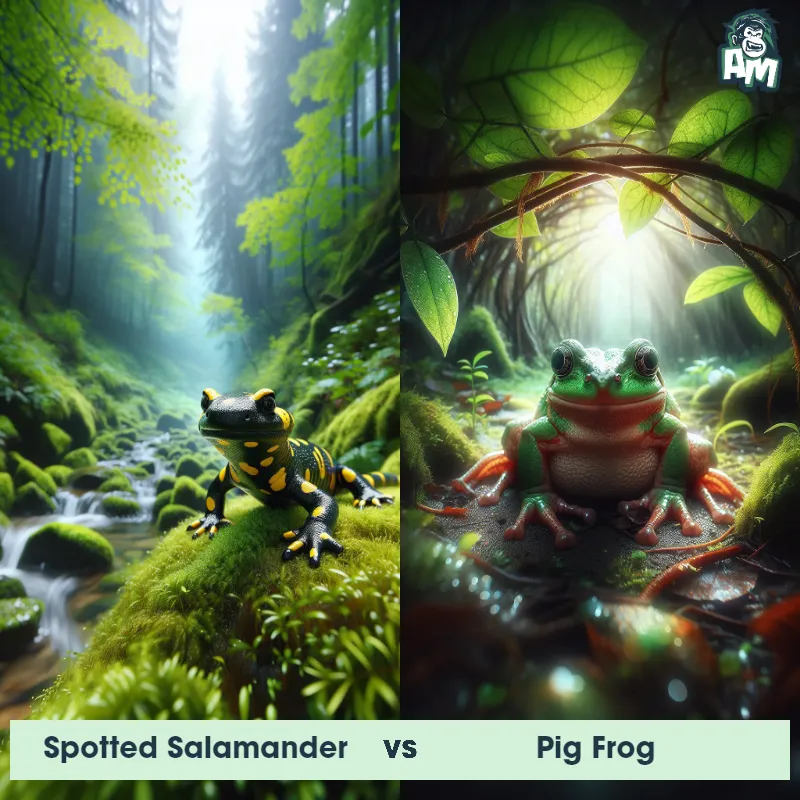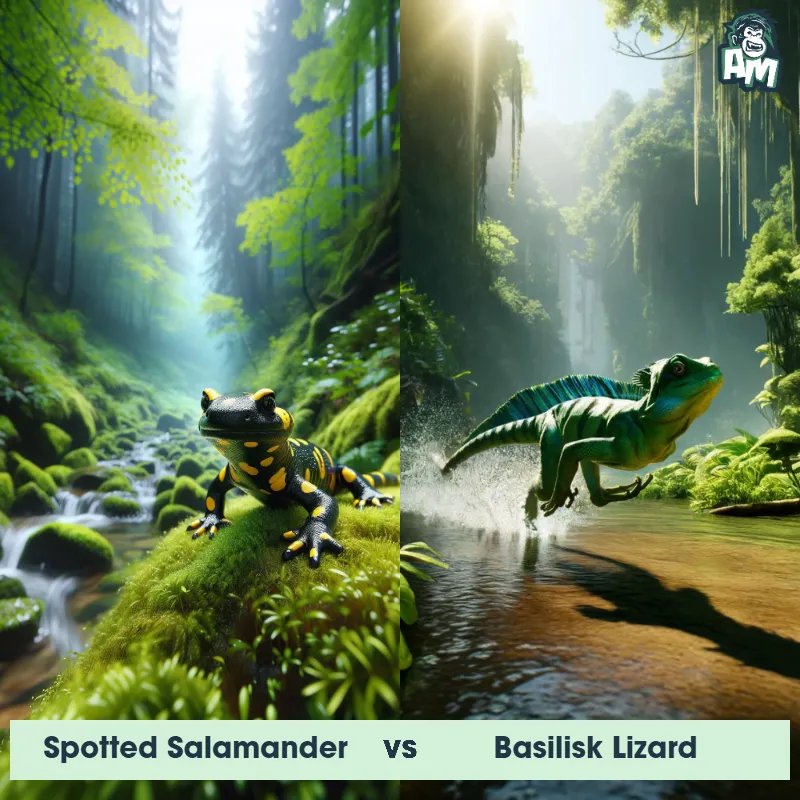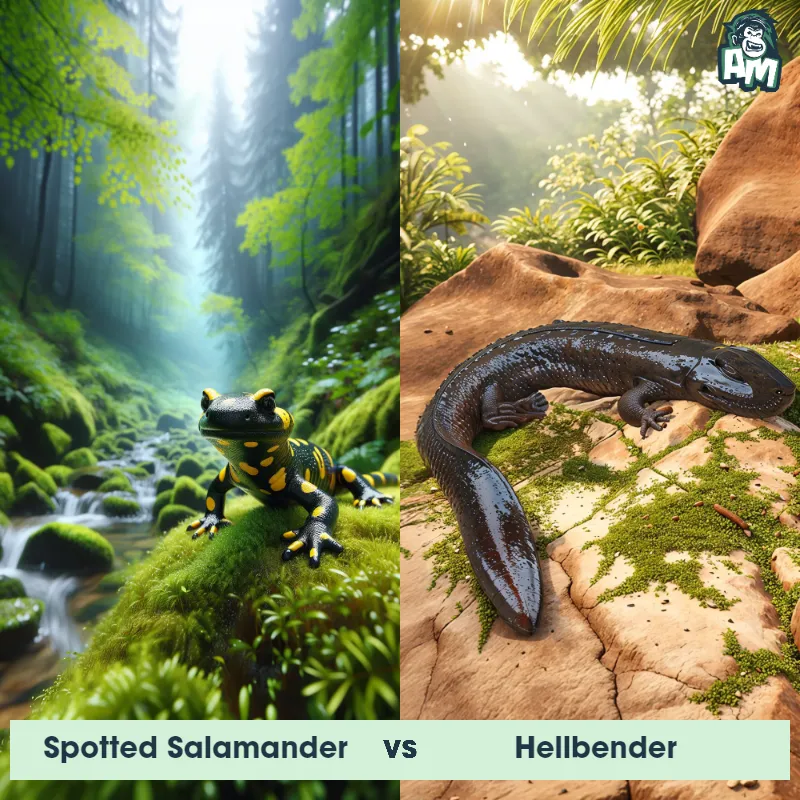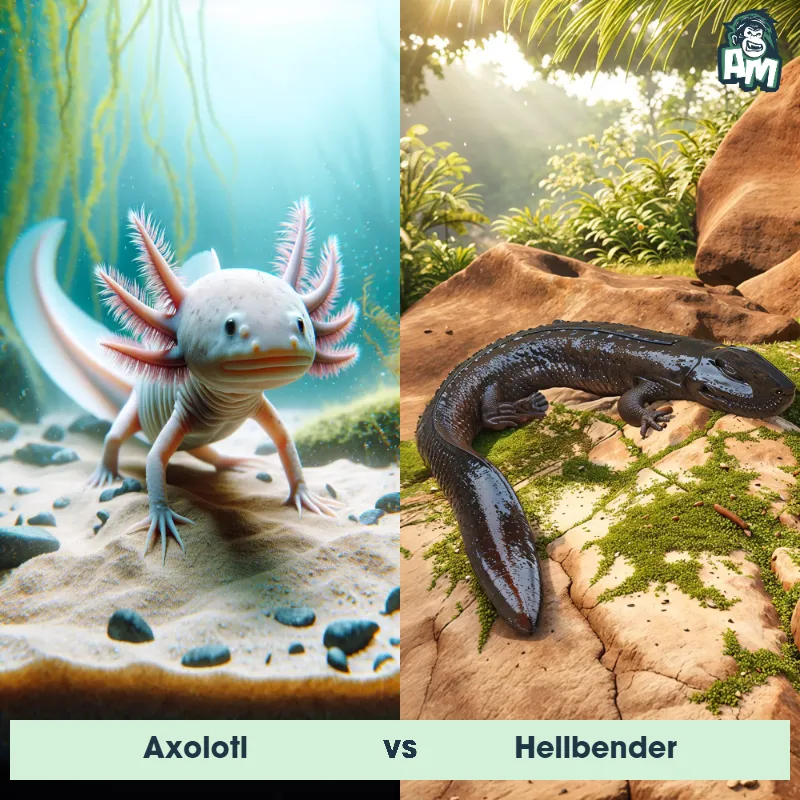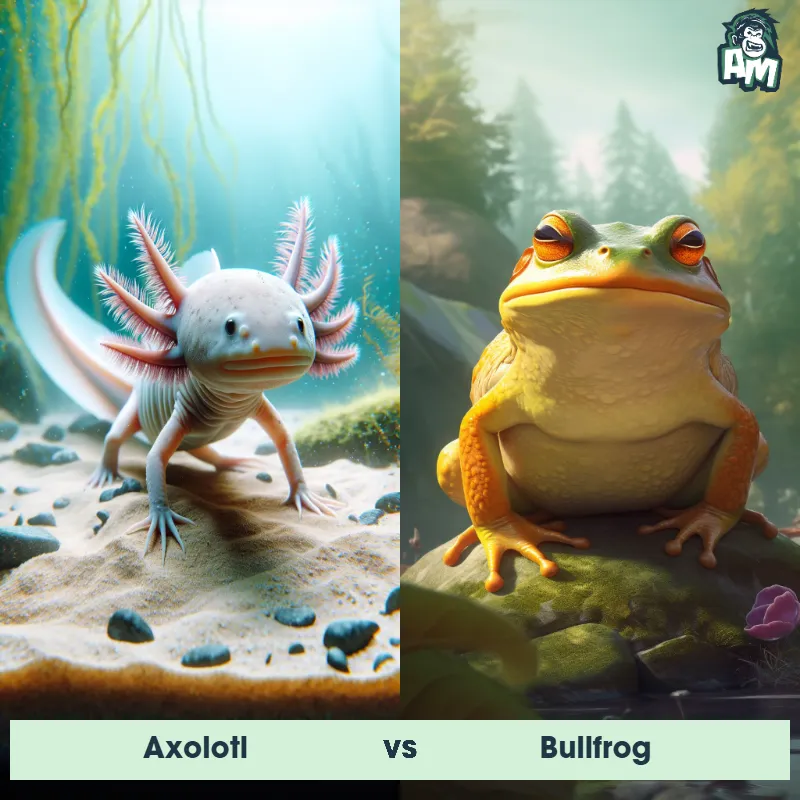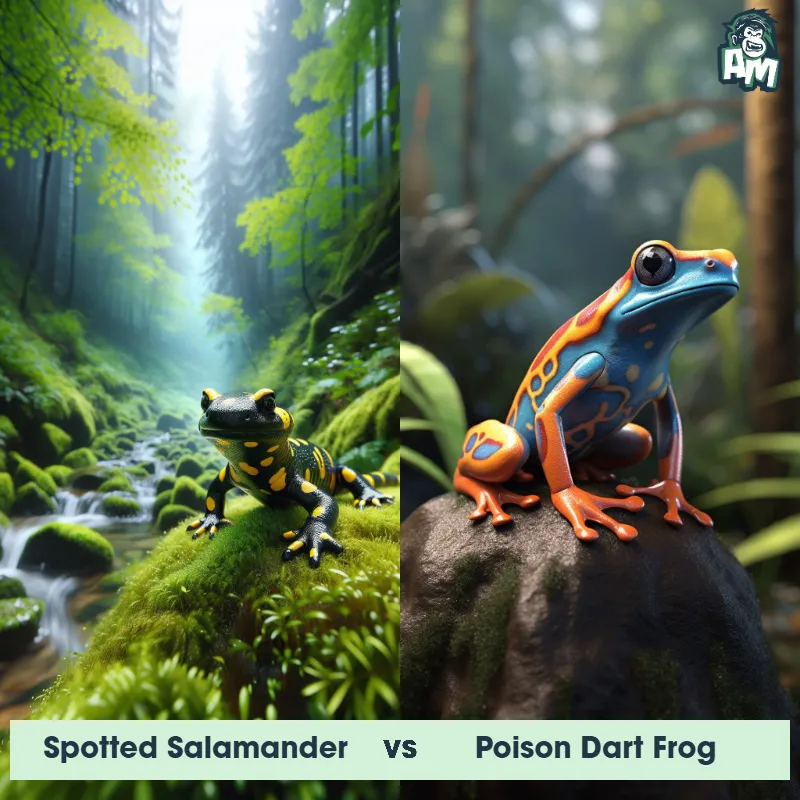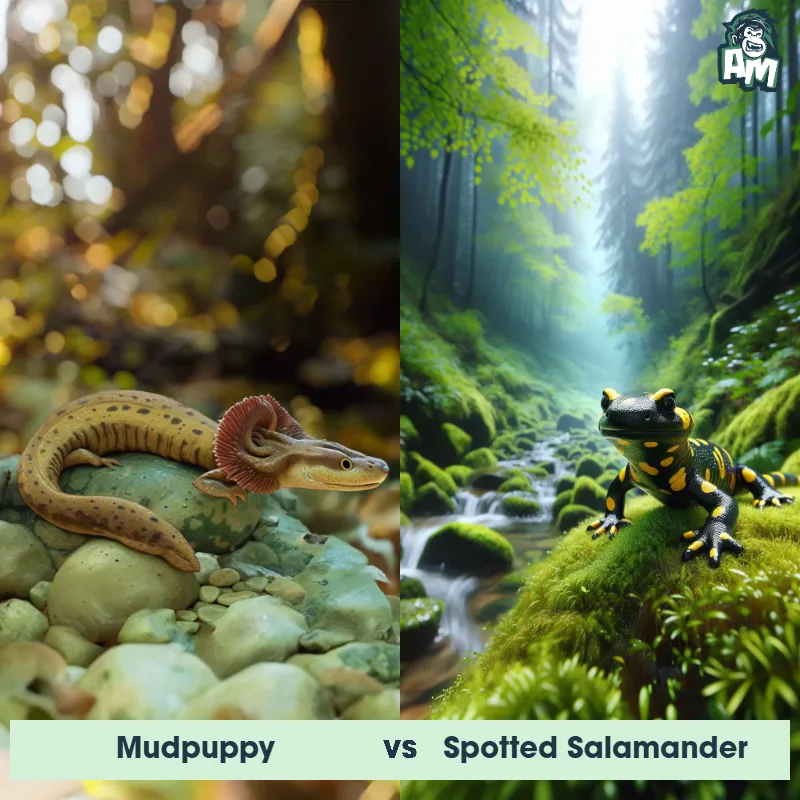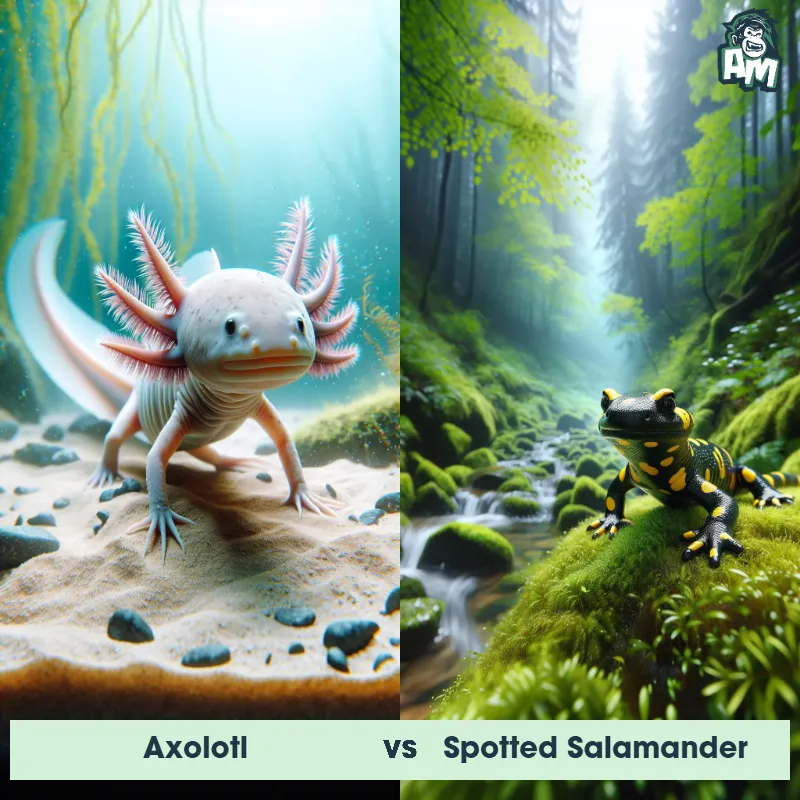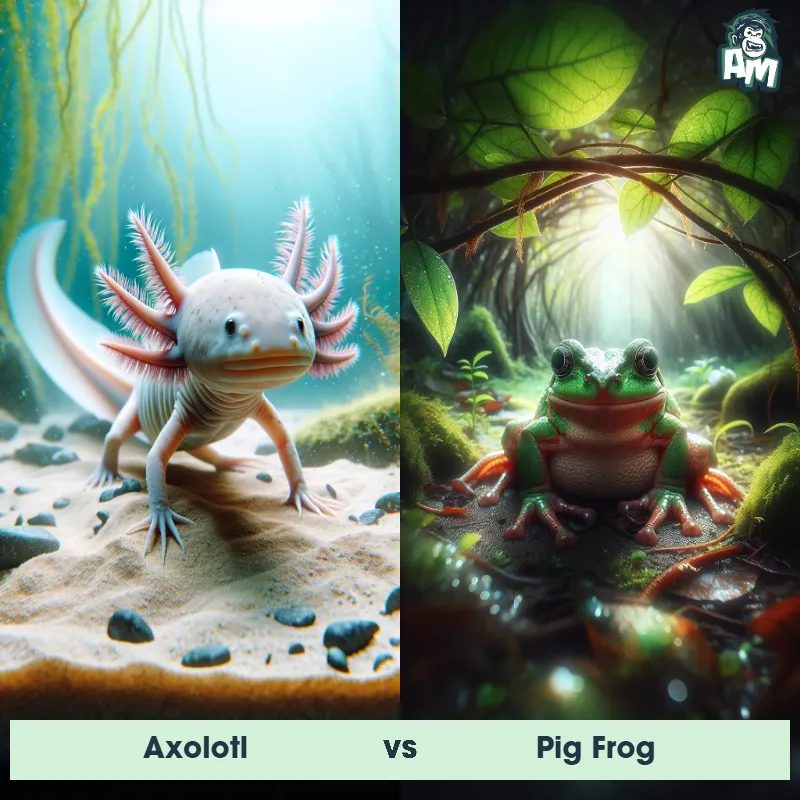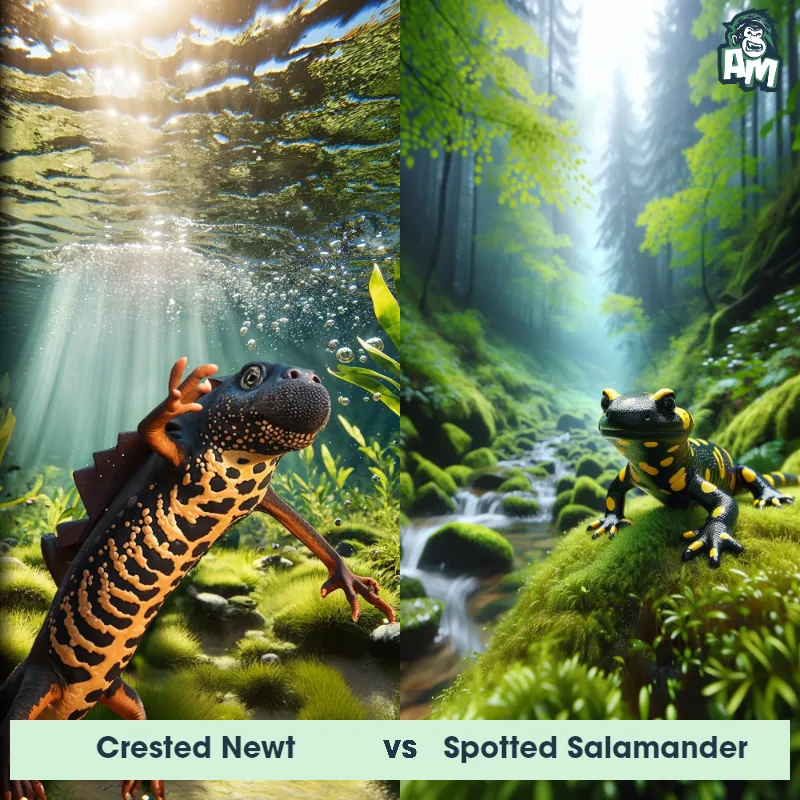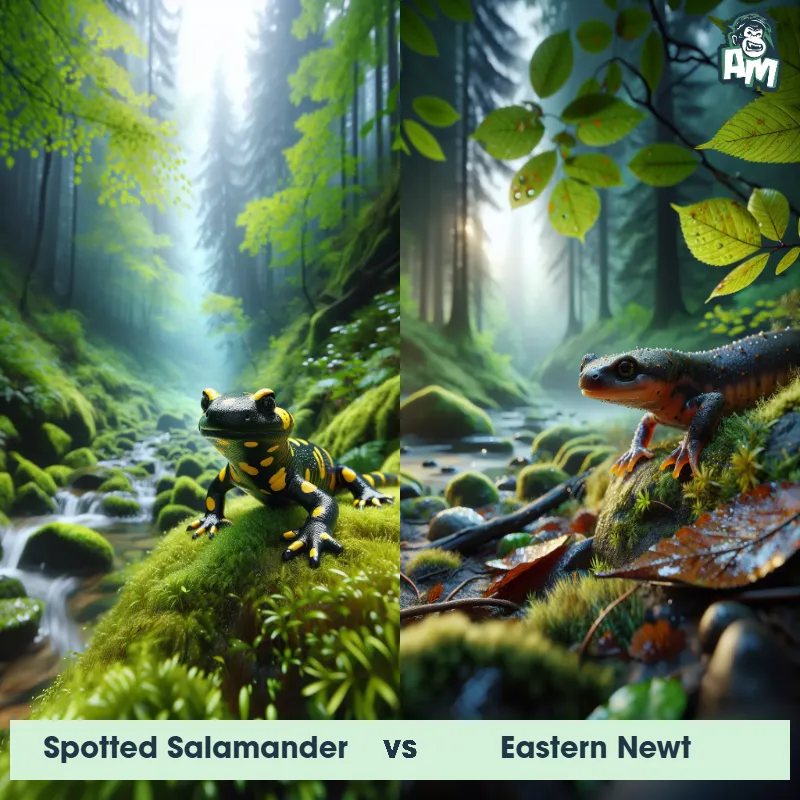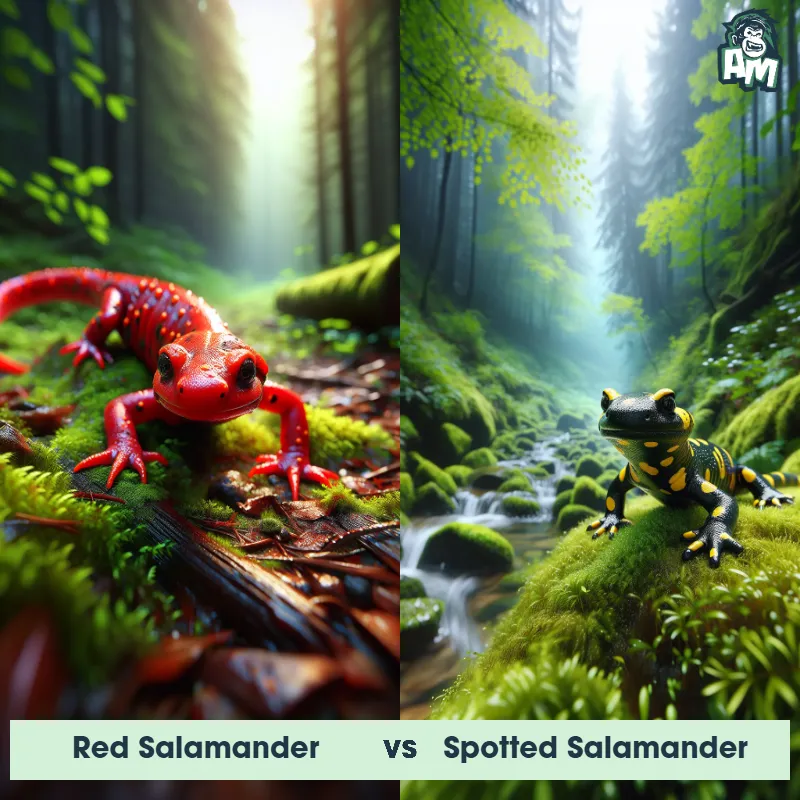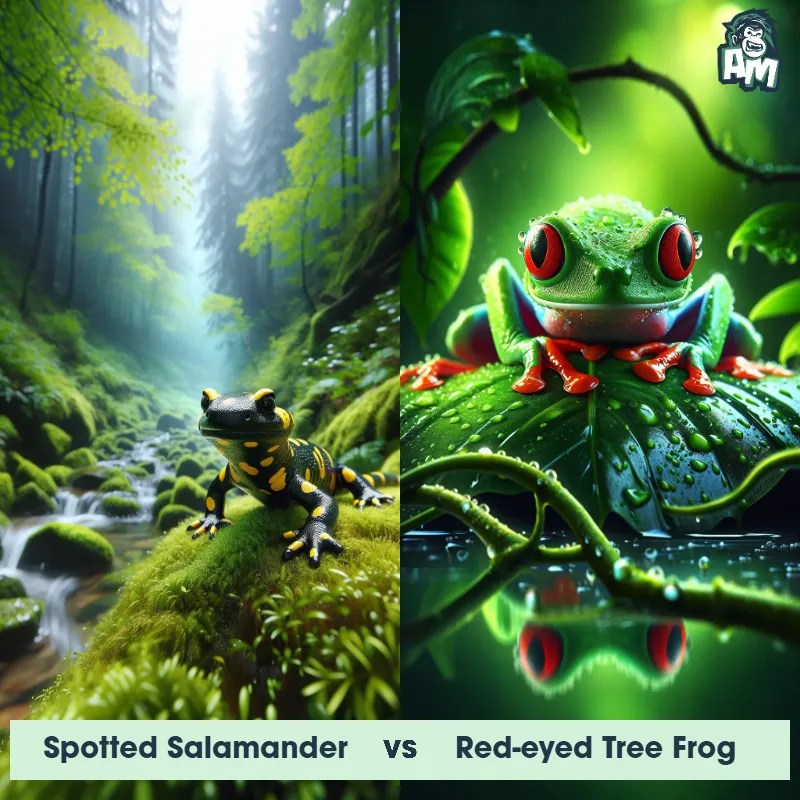Axolotl vs MudpuppySee Who Wins
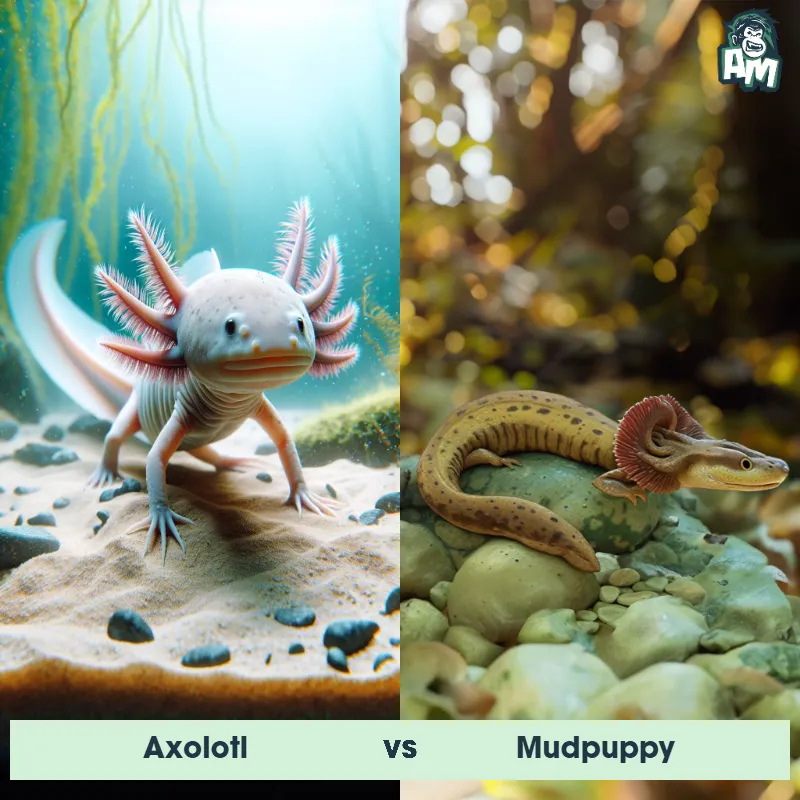
Welcome to the matchup between the Axolotl and the Mudpuppy! These two amphibians are about to go head to head in a three-round fight to determine who will come out on top. Let's see who will prove themselves as the ultimate amphibious warrior.
Contender 1: Axolotl
The Axolotl, also known as the Mexican Salamander or Mexican Walking Fish, is a unique amphibian known for its neotenic qualities, retaining its larval features throughout its adult life. It has external gills, a dorsal fin, and a long, slender body. Axolotls can come in various colors, including black, brown, gray, gold, and white.
Fun Fact: Axolotls have amazing regenerative abilities, being able to regrow lost body parts such as limbs, tail, and even parts of their brain.
Contender 2: Mudpuppy
The Mudpuppy, also known as the waterdog, is a type of aquatic salamander that can be found in North America. They have a robust body with smooth, slimy skin and external gills that never disappear, even in adulthood. Mudpuppies typically have dark-colored bodies with lighter spots or speckles and can grow up to 13-16 inches in length. They are known for their large, paddle-like feet that help them navigate through the water.
Fun Fact: Mudpuppies are one of the few salamander species that are completely aquatic and never leave the water, making them excellent swimmers with their webbed feet.
Matchup Stats
| Axolotl | Mudpuppy | |
|---|---|---|
| Size | Up to 9-12 inches (23-30 cm) | 13-16 inches (33-41 cm) |
| Weight | 8-16 ounces (225-450 grams) | 6-18 ounces (170-510 grams) |
| Speed | 5 mph (8 km/h) | 25 mph (40 km/h) |
| Key Strength | Regenerative abilities | Strong grip and bite |
| Biggest Weakness | Presence of external gills can be vulnerable | Vulnerable to drying out on land |
Current Votes
Axolotl vs Mudpuppy
See Who Wins
View More Matches
Looking For More?
Similar Matches
Scientific Stats
| Axolotl | Mudpuppy | |
|---|---|---|
| Scientific Name | Ambystoma mexicanum | Necturus maculosus |
| Family | Ambystomatidae | Proteidae |
| Habitat | Freshwater | Aquatic environments, such as rivers, lakes, and streams |
| Geography | Originally found in the waters of Lake Xochimilco in Mexico | North America |
| Diet | Carnivorous, feeds on small fish, worms, insects, and some plant matter | Carnivorous, feeding on insects, crustaceans, small fish, and aquatic invertebrates |
| Lifespan | 10 years - 15 years | 12 years - 20 years |
Key Differences between Axolotl and Mudpuppy
- Gills: The Axolotl retains external gills throughout its life, giving it a more aquatic appearance, while the Mudpuppy loses its gills as it matures and develops lungs for breathing air.
- Conservation status: The Axolotl is critically endangered in the wild due to habitat destruction and pollution, while the Mudpuppy is considered of least concern with stable populations in its geographic range.
- Habitat: Axolotls are native to Mexico and primarily found in freshwater lakes and ponds, whereas Mudpuppies are found in eastern North America and inhabit streams, rivers, and lakes.
- Color: The Axolotl is known for its vibrant colors, such as pink, gold, and white, whereas the Mudpuppy is usually a duller shade of brown or gray.
- Size: The Axolotl is typically smaller, reaching lengths of 6-12 inches, while the Mudpuppy can grow up to 13-16 inches in length.
- Behavior: Axolotls are known for their regenerative abilities, able to regrow lost body parts, while Mudpuppies are more carnivorous and actively hunt for prey.



